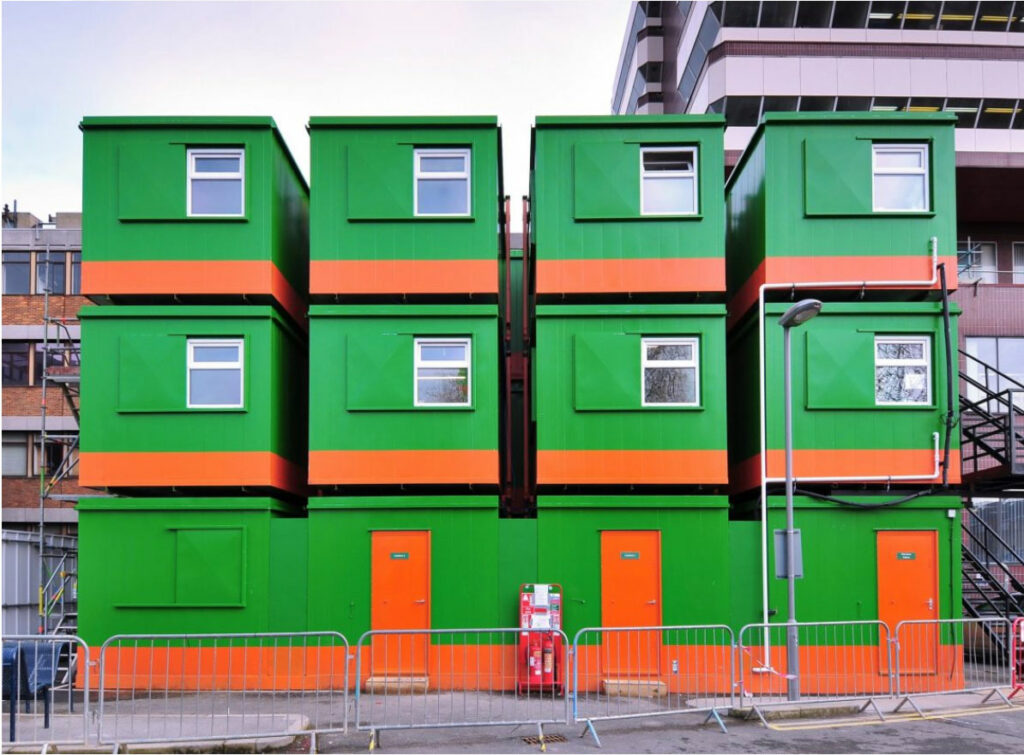Going green with modular cabins: eco-friendly adaptations for a sustainable future
3 min read | Published October 17th 2025 | Updated October 17th 2025 | James Osborne
As sustainability becomes a priority for more companies, the demand for eco-friendly infrastructure is at an all-time high.
Modular products can be refurbished in various ways to improve their carbon footprint:

As sustainability becomes a priority for more companies, the demand for eco-friendly infrastructure is at an all-time high.
Off-site manufactured modular and relocatable cabins offer companies a flexible, efficient solution for boosting eco-credentials, as they can be readily adapted with sustainable features that enhance energy efficiency.
Many of our Thurston products can be refurbished to improve their carbon footprint…
Enhanced insulation
One of the simplest yet most effective ways to reduce energy consumption is through enhanced insulation. Properly insulated cabins help maintain a stable internal temperature, reducing the need for excessive heating or cooling. High-performance insulation materials, such as recycled cellulose or sheep wool, ensure that cabins remain energy-efficient while minimising environmental impact.
Double glazing for windows
Windows are often one of the main areas where heat loss occurs, making double glazing a crucial adaptation. Double-glazed windows stop heat from transferring from one side to the other, meaning in winter, they stop heat escaping from the inside of the property and in hot weather they limit the amount of heat transferring inside. Not only does this improve energy efficiency, but it also provides better soundproofing-ideal for cabins in busy, high-traffic areas.
LED lighting and low-energy electrical systems
Switching to energy-efficient LED lighting is a small change that can make a significant difference. LEDs use less power than traditional lighting and have a longer lifespan, meaning fewer replacements and less waste.
We can go a step further, incorporating low-energy electrical systems, which can include features like motion-activated lighting and programmable thermostats, further minimising electricity consumption.
Integrating smart temperature control systems within a cabin ensures that heating and cooling resources are used only when necessary. Programmable thermostats or remote-controlled HVAC systems allow businesses to monitor and manage temperature, helping to avoid wasted energy and unnecessary greenhouse gas emissions.
Eco-friendly paints and finishes
Traditional paints and finishes can release volatile organic compounds (VOCs) into the environment, impacting air quality. Opting for eco-friendly, low-VOC paints and finishes keeps indoor air healthier and reduces the environmental impact of these chemicals. Many manufacturers now offer eco-friendly paint options, allowing companies to go green inside and out.
Incorporating these adaptations can achieve a range of valuable benefits, besides reducing your carbon footprint. Enhanced insulation and double-glazing systems work together to reduce energy usage, leading to significant cost savings. Additionally, better insulation, advanced temperature control, and improved air quality contribute to a more comfortable and healthier work environment for employees.
One of the key advantages of modular construction is that it’s ideal for companies looking for versatile, cost-effective structures that can be deployed quickly, and our cabins are no exception. By making eco-friendly adaptations, businesses can not only enjoy the practical benefits of modular and relocatable cabins but also make strides towards sustainability goals. From enhanced insulation to renewable energy options, these eco-friendly choices make modular cabins an even smarter solution for today’s environmentally conscious companies.
Head to our cabins page to see the range of products that can be adapted to suit your eco needs.
Read our Other Recent News
FAQs – Cabins
Covering the most frequently asked questions about the cabins and relocatable building products offered at Thurston Group.
3 min read | Matt Goff
The key building and fire safety regulations we’re meeting and exceeding in 2025
To help you stay in the know of the current requirements for builders and offsite manufacturers, we’ve prepared a handy guide covering what the key UK building and fire safety regulations are heading into 2025.
3 min read | Marc Johnson